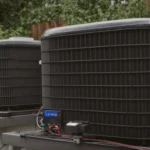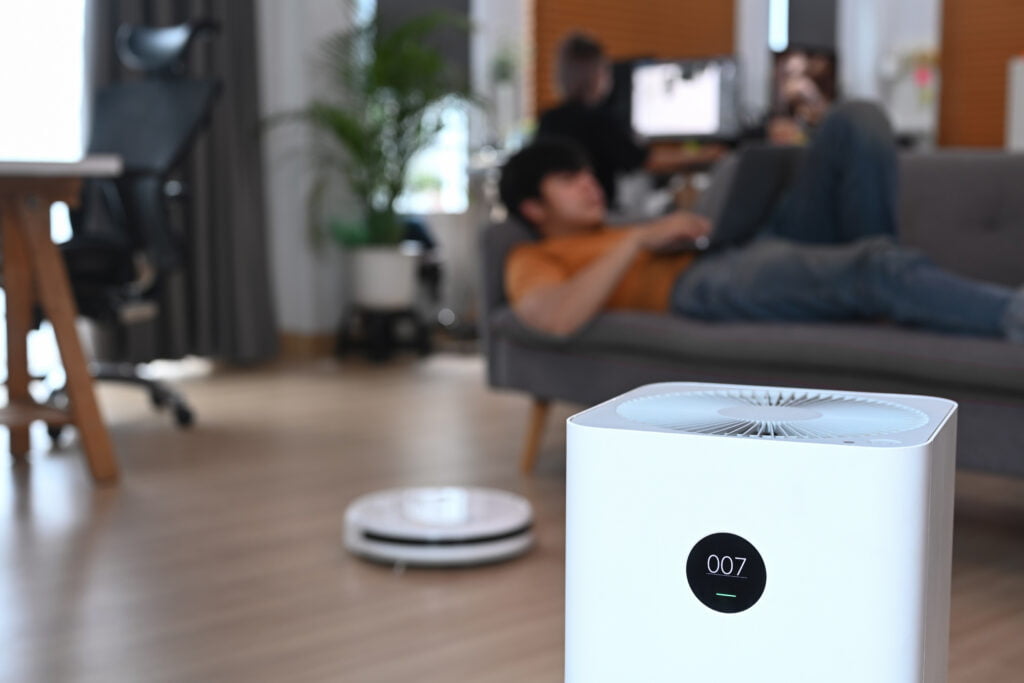Indoor air quality is becoming increasingly important as people spend more time indoors, whether at home or in the office. Maintaining a healthy environment is essential to enhancing overall well-being and productivity. In this article, we will discuss how air purification and HVAC systems can improve indoor air quality in our homes and workspaces, contributing to a healthier and more comfortable living environment.
The Importance of Good Indoor Air Quality

Indoor air quality has a significant impact on our overall health, as poor air quality can lead to various health problems, such as allergies, asthma, and respiratory issues. It can also affect our mental well-being, causing symptoms like fatigue, headaches, and difficulty concentrating. Therefore, ensuring that the air we breathe indoors is clean and free of pollutants is critical in maintaining our health and quality of life.
Many factors can contribute to poor indoor air quality, including dust, mold, tobacco smoke, pet dander, and outdoor pollutants that enter our homes. Ensuring proper ventilation, regular cleaning, and the use of air purifiers can help minimize these pollutants and drastically improve the air quality within our living spaces.
It’s also essential to work with a qualified HVAC company to ensure that equipment is running as it should. Regular HVAC checks and seasonal maintenance are critical for indoor air quality. Companies like Caprock Services specialize in HVAC systems and can help assess and address your specific indoor air quality needs.
Understanding Air Purification Technologies

There are various air purification technologies available designed to eliminate or reduce different types of pollutants in the air. Some popular options include High-Efficiency Particulate Air (HEPA) filters, activated carbon filters, ultraviolet germicidal irradiation (UVGI), and photocatalytic oxidation (PCO). Each technology has its unique strengths and is suited for specific applications and environments.
HEPA filters are effective in capturing particulate pollutants like dust, pollen, and pet dander and are used in many air purifiers and HVAC systems. Activated carbon filters target chemicals, odors, and volatile organic compounds (VOCs) by absorbing these contaminants in their porous structure. UVGI utilizes ultraviolet (UV) light to deactivate airborne pathogens such as bacteria, viruses, and mold spores. PCO technology reacts with pollutants, converting them into harmless by-products through a catalytic process.
When selecting an air purification system for your home or workspace, it’s essential to understand the specific pollutants you need to address and choose a technology or combination of technologies that effectively targets those contaminants. Consulting with an HVAC specialist can help you make informed decisions about the best air purification solution for your space.
Maintaining Your HVAC and Air Purification System
Regular maintenance of your HVAC and air purification system is crucial to ensure optimal indoor air quality. This includes tasks like changing the filters, cleaning the ducts, and inspecting the system’s components for any problems. Failure to maintain your system can result in reduced efficiency and potentially harmful contaminants circulating in your living space.
It’s generally recommended to replace your air filters every three months, although this may vary depending on factors such as your system’s specific needs, the quality of outdoor air, and whether there are pets or smokers in the home. Regularly checking and cleaning your ductwork can help prevent the buildup of dust, mold, and other pollutants. It’s also essential to schedule periodic professional inspections and HVAC maintenance to ensure your system is functioning correctly and efficiently.
Benefits of Integrating Air Purification with HVAC
Integrating air purification technologies with your HVAC system provides several benefits, including improved energy efficiency, reduced allergens, and a healthier environment. When your HVAC system is working in tandem with an air purifier, you can effectively filter the air in the entire home, providing consistent air quality improvement throughout.
Since integrated systems can treat the air as it circulates through the HVAC system, you can achieve more uniform pollutant reduction, ensuring that all areas of the home have access to clean, fresh air. Additionally, a well-maintained HVAC and air purification system can increase the energy efficiency of your home, resulting in reduced energy costs over time.
Overall, improving indoor air quality through proper air purification and HVAC systems is essential for maintaining a healthy living environment. By understanding the different technologies available, ensuring regular maintenance, and integrating air purification with an HVAC system, you can create a home that promotes better health, increased comfort, and enhanced well-being for you and your family.












